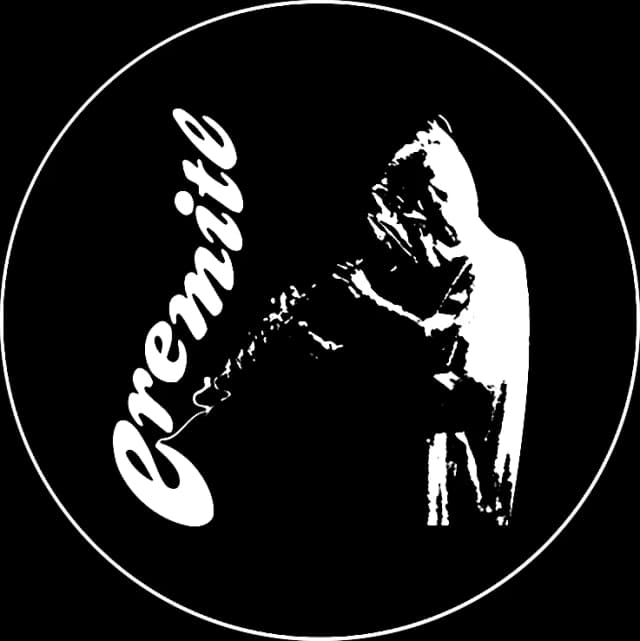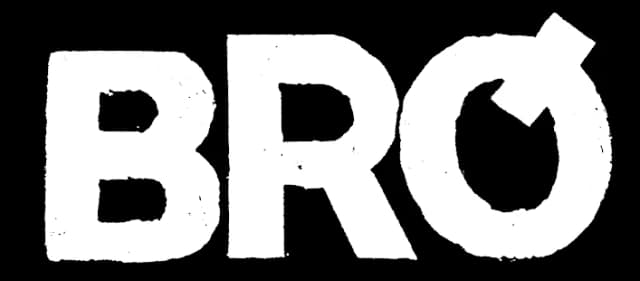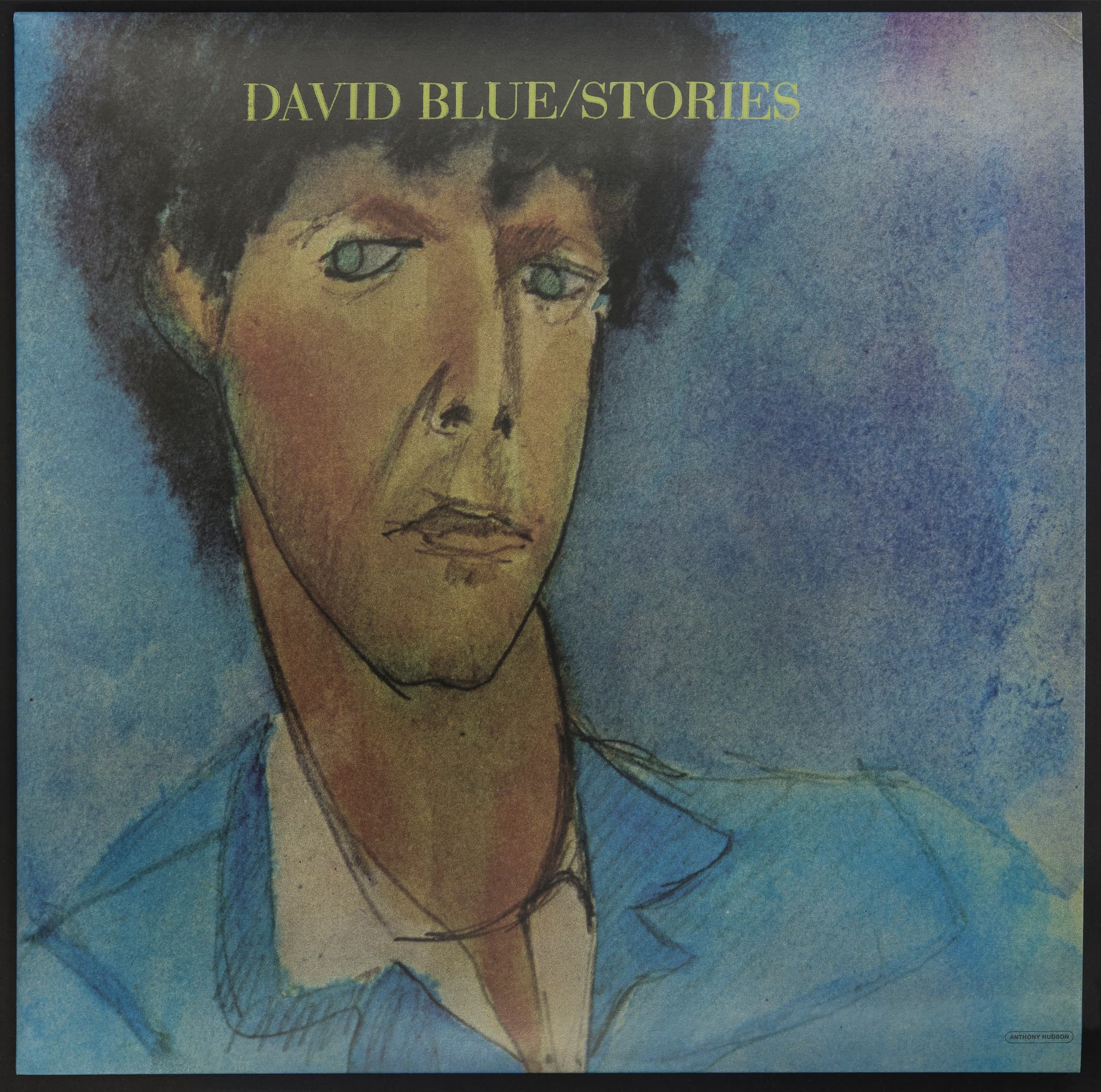Stories
David Blue
Personnel
David Blue guitar, piano & vocals
Bob Rafkin bass & guitar
Russ Kunkel, James Karstein, John Barbata drums
Ry Cooder guitar
Ralph Shuckett organ
Milton Holland percussion
Pete Jolly accordion
Chris Ethridge bass
Rita Coolidge vocals
Jack Nitzsche string arrangements
Track Listing
- Looking For A Friend
- Sister Rose
- Another One Like Me
- House of Changing Faces
- Marianne
- Fire In The Morning
- Come on John
- The Blues (All Night Long)
Audio Clips
Looking For A Friend
4.36 MB
Recording Notes
recorded Los Angeles, 1971
producers David Blue, Bob Rafkin, Henry Lewy
engineer Henry Lewy
eulogy Leonard Cohen
reissue producer Michael Ehlers
Description
a note to international customers: please place your order with paid shipping. i’ll email you with any adjustments to the shipping cost to your region. configuring the paypal shipping calculator for each international region is not possible. eremite's paypal shipping calculator is set for USPS media mail, the order we receive the most frequently by far. thanks for your understanding.
”David Blue was the peer of any singer in this country, & he knew it, & he coveted their audiences & their power, he claimed them as his rightful due. & when he could not have them, his disappointment became so dazzling, his greed assumed such purity, his appetite such honesty, & he stretched his arms so wide, that we were all able to recognize ourselves, & we fell in love with him.” (Leonard Cohen). David Blue is the ‘Blue’ in Bob Dylan’s “Baby Blue”, the voluble chain-smoking pinball loner in Renaldo & Clara, a companion of Joni Mitchell’s during the time she made Blue, the “blue’s not right” art collector in Wim Wender’s The American Friend. The second artist signed to David Geffen’s fledgling Asylum records (after Judee Sill), Blue’s 1971 Asylum debut Stories sold a woeful 2000 copies. Perhaps a factor in the album’s spectacular failure to achieve traction is the almost harrowing emotional vulnerability of Blue’s songs & performances. About Stories Blue himself said “if you listen to the record & say, ‘god, what a downer,’ then i’ve succeeded in doing exactly what i wanted to do.” Recorded with Blue’s foil, guitarist Bob Rafkin, & an A-list ensemble of LA session musicians that includes among others Ry Cooder, Rita Coolidge, Chris Ethridge, & Russ Kunkel, engineered by Henry Lewy (Blue, Gilded Palace of Sin) with string arrangements by Jack Nitzsche, Stories is the one true masterpiece of David Blue’s short life (Blue died age 42 from a heart-attack while jogging in Washington Square Park).
Aficionados of the “stoners&loners” genre have slept on Stories. In the estimation of those long involved in the activities of eremite records, Stories finest moments (& there are many) foreshadow dark classics from later in the decade such as Gene Clark’s No Other, Neil Young’s ‘Ditch Trilogy’ & Dennis Wilson’s Pacific Ocean Blue, spirit albums in which the artists’ torments are transfigured into high art through bummer song. As an expression of appreciation & love to David Blue, eremite’s edition of Stories surpasses all previously available versions in both audio reproduction & presentation. Kevin Gray at Cohearent Audio gently remastered the music from the original tapes & cut the lacquers. Pressed on premium audiophile 120 gram vinyl at RTI, Stories is presented in a retro flipback jacket with a 12x12 hand screenprinted (in peacock blue ink) insert by Alan Sherry / Siwa that reproduces in-full Leonard Cohen’s 1982 eulogy for David Blue. Stories is the only release on eremite records' subsidiary label -Sister Rose- (titled after the second song on side 1 of -Stories-).
Edition 999 copies. In the words of Gil Scott Heron, “all the dreams you show up in are not your own.”
Press
David Blue had an eventful if largely under the radar career as a singer-songwriter and actor; most people likely know him, or better said, know of his achievements, through the composition “Outlaw Man,” which was recorded by the Eagles. Starting in 1966, he cut a string of albums, and for a while, each one was more interesting than its predecessor, a climb in quality that apexed with Stories, his 1971 set for Asylum Records, an LP as worthwhile as its sales were poor. On September 2, the Eremite label detours from their avant-jazz norm with a well-deserved reissue on 120 gram vinyl in a retro flipback jacket and with an insert featuring Leonard Cohen’s 1982 eulogy for the man.
Born Stuart David Cohen in 1941, David Blue died of a heart attack in 1982 while jogging in Central Park. Although never himself a star, he ran in the circles of musical celebrity, befriending Joni Mitchell and Bob Dylan, with the latter association especially notable, as Blue’s self-titled 1966 debut for Elektra is very much a knock-off of Dylan’s budding folk-rock mode.
Far from a vapid hanger-on, later in his career Blue joined the Rolling Thunder Revue, with his participation landing him in Dylan’s sprawling and legendarily hard-to-see cinematic epic Renaldo and Clara, which briefly hit (a few) theaters in1978 and hasn’t seen a legit release since. Blue’s appearance in Renaldo and Clara was essentially a documentary riff, but he was an actual actor in both Wim Wenders’ ’77 neo-noir The American Friend, and Neil Young’s harder to classify Human Highway, which was released in ’82, shortly after Blue’s death.
Returning to the discography, David Blue is a Dylan knock-off, but a highly accomplished one, with a couple of gems in the category of imitative Bob-ishness (“So Easy She Goes By” and “I’d Like to Know”), but his 1968 follow-up These 23 Days in September was a more impressive affair in how it reinforced his acumen as songwriter and broadened the landscape of similarities, with a few moments reminiscent of Leonard Cohen (amid a lingering likeness to Dylan). His third LP and second of two for Reprise, Me, released in 1970 under the name S. David Cohen, branched out into country-folk territory.
This turn of events had less to do with riding Dylan’s coattails than folks unfamiliar with Blue might assume, as Me opened with a solid version of Merle Haggard’s “Mama Tried.” And all the while, his singing was getting stronger and warmer, which would prove crucial to Stories, the record opening with the decidedly gentle “Looking for a Friend,” its musings following an unsurprising singer-songwriter trajectory given the year of the LP’s release and the label doing the releasing, but nicely avoiding the milque toast (talkin’ ‘bout you, Sweet Baby James).
Instead, Blue sounds a little like Waylon Jennings, a definite plus that extends to the following track “Sister Rose” and its higher plateaus of intensity, The track is also enhanced by some expert playing, as Stories features a strong cast of sessioneers; we’re talking Ry Cooder, Russ Kunkel, Pete Jolly, Rita Coolidge, Chris Ethridge, and Bob Rafkin. But don’t go thinking this album is a case of the backing band upstaging the singer and his songs.
Of course, Cooder’s slide guitar in “Another One Like Me” is a welcome touch, but it’s Blue’s singing and fingerpicking that carry the tune. From there, “House of Changing Faces” delivers a somewhat Neil Youngish twist to wrap up side one. The flip opens with the gorgeous “Marianne,” its subject matter shared with a song by Leonard Cohen, and even as Blue’s singing has stepped onto its own zone, it does remind me a bit of Aussie singer-songwriter-rocker Michael Beach, to offer a more recent example (if one with some affinities with Dylan).
This nod to Beach, who is himself an admittedly modestly-profiled player on the current scene, underscores that Stories isn’t a relic of its time, even as portions do reflect its era, as “Fire in the Mountain” finds Blue switching to piano with Jack Nitzsche contributing a swell string arrangement. Sticking with piano for the terrific “Come on John,” Blue dishes some of his most biting and direct lyrics, on drug addiction (not his), as the full band kicks in.
“The Blues (All Night Long)” sees the return of Cooder’s slide, unsurprising given the title, and the cut’s overall sweep is considerable, incorporating Ralph Shuckett’s organ and Coolidge’s voice for a fine finale. Stories isn’t perfect (this mostly relates to his indebtedness to his influences), but the record also doesn’t register any major flaws. It’s a LP that should be appreciated by far more people than have heard it, and so it’s splendid that Eremite has put it back in circulation.
GRADED ON A CURVE:
A-
Joseph Neff, thevinyldistrict.com
Stories is a song cycle steeped in alienation and palpable longing, performed with elegant intimacy. It boasts string arrangements by Jack Nitzsche and backing players including Ry Cooder and Rita Coolidge. And when it was released on Asylum in 1971, it barely sold at all. Now Eremite has created a subsidiary label solely for American loner singer-songwriter David Blue's gospel, ushering it back into the world with the care of a late-night love letter. In addition to the faithfully recreated original package, there’s a screenprinted insert with an image of Blue with Leonard Cohen and the text of Cohen’s breathtaking eulogy for Blue, written upon his untimely death in 1982.
“Looking for a Friend” sets the tone for what is to follow. As the songs go on, the desire for connection is ever present, only to be thwarted by betrayal, self-sabotage, or simple circumstance. “House of Changing Faces” is something of a centerpiece, a six-minute drama of psychic collapse that portrays a strung-out life in many shades of nihilistic grey. When Blue speaks of the days when he “wanted to die,” we have to question the use of the past tense. It’s subject matter that’s echoed on “Come on John,” which, though it stomps musically, says of its subject, “You wanted to die but what’s the use?” Turning directly to the listener, Blue tells us “He says he can’t take it/Then he takes it every day.” “Marianne” relays the story of an affair with a squeezebox sadness adorning its sweet riverboat melody. Tellingly, the woman in the song is more than just a lover, she’s a friend as well – the inverse of the woman in the first song. She has helped the narrator, and he feels grateful.
And still the album is no mere diary of difficulty. There is a delicacy in the performances and a trustworthy vulnerability to Blue’s vocal delivery that invest the record with hard-won radiance. It holds its desolation so securely that something transcendent emerges. Bummers are a dime a dozen, but this is something else.
Matt Krefting, The Wire
There was a time when you could buy a label's output and be confident you'd made a quality record purchase without hearing the music. Labels that managed this late '60s/early '70's feat included Elektra, Warner Brothers/Reprise, Island and David Geffen's Asylum Records.
You could buy with confidence Love's debut,The Doors, Jackson Browne's Saturate Before Using, Traffic's Mr. Fantasy, Cat Stevens' Mona Bone Jakon, for example, even if you knew nothing about the artist. Buying Asylum's output was easier: artists like Joni Mitchell had already established themselves. Even a "new act" like The Eagles had members with a known background working as part of Linda Ronstadt's band.
David Blue's Asylum debut Stories issued in 1972 should have been a "no-brainer" for many record buyers who purchased "by label" (and there were many who did) but somehow the album did not sell well. It wasn't Blue's first album, any more than Mona Bone Jakon was Cat Stevens' first album. Both had previous, unsuccessful, unfocused albums. Blue had released a 1966 eponymous album on Elektra, and two later releases on Reprise (one issued under his real name S. David Cohen), neither of which was successful. Following Stories Blue issued three additional Asylum albums.
None of Blue's albums brought him the success achieved by his friends from either the East Coast folk scene he shared with Bob Dylan, Phil Ochs, Eric Anderson and others, or the later California one where he was friends of Joni, Jackson and The Eagles, which covered his song "Outlaw Man" that had been the lead song on his 1973 Asylum album Nice Baby and the Angel.
Blue is on the cover of The Band's Basement Tapes album and toured with the Rolling Thunder Review, and he later found work as an actor and seemed to have finally found success in theater and films while continuing to perform as a singer/songwriter.
The story has the expected sad ending. Blue died suddenly, December of 1982, of a heart attack at age 41 while jogging in Washington Square Park, Greenwich Village. One of Blue's friends, Leonard Cohen, wrote a touching elegy that's included in a fullsized one-sheet; a photo on the other side is of the two together taken around 1980.
Cohen's piece begins straightforward with "He died running, he fell beside the square, to the street where, many years before he had begun to sing, he fell in the fullest expression of vanity & discipline." Cohen intimates that Blue and Joni had been an early item mentioned obliquely in song and that Kris Kristofferson has referenced him as well. Mitchell introduced Blue to Elliot Roberts and David Geffen. Blue hired future Eagle Don Felder for his back-up band, auditioning him in Joni's apartment.
Cohen goes on to say that Blue was "...the peer of any singer in this country, & he knew it., & he coveted their audiences & their power, he claimed them as his rightful due. & when he could not have them, his disappointment become so dazzling, his greed assumed such purity....." you'll have to read the rest yourself, though this reissue is limited to 1000 copies so if you are interested....
I remember passing on this record when it was released though i regularly bought what Asylum issued. There were names on the back cover that are more familiar now and had I known them then there's no way I'd have missed this record. Russ Kunkel, Ry Cooder, Milt Holland, Chris Ethridge, Rita Coolidge and Jack Nitzsche are among the musicians credited. The album was produced and engineered by Henry Lewy. Henry Diltz took the Lou Reed-ish looking back cover photo. Anthony Hudson drew the angular portrait of Blue in blue on the cover (along with covers for Neil, Joni, et.al). You probably know his son Saul a/k/a "Slash".
A sad story with fame all around him but none to spare and a sad story album filled with same. The opening line of the first song "Looking for a Friend" is "I never really had a friend of my own, I had a woman once, I thought we were close, That was then...." Need more be divulged for you to know where this one's going? Well one more thing: there's a song called "Marianne" and it's that Marianne.
There's a song about a junkie and one about a failed conquest and surely by now you get the picture. Blue on guitar, piano and darkly hewn vocals is closely miked and right there in your room getting the best Henry Lewy singer-songwriter sonic treatment. By all means think Leonard Cohen, maybe Tom Rush and definitely Townes Van Zandt (among others) and you'll get the musical picture though if you get one of the 1000 copies you'll get David Blue.
Kevin Gray cut from the original master tapes and the pressing, from wherever, was quiet and well-done in every way. The jacket is odd: it's a "fold-over" and not of Stoughton Press or Dorado or some of the other top jacket manufacturer quality, but that's a minor consideration.
There's a song on the album called "Sister Rose" and the reissue was produced for Sister Rose by Michael Ehlers, clearly a fan and a man on a mission. David Blue had a friend after all. He had many friends. Order directly from Eremite Records
MUSIC SPECIFICATIONS
Label:Eremite Records/Asylum
Catalog No:MTE-73
Country of Origin:USA
Pressing Plant:RTI
SPARS Code:AAA
Speed/RPM:33 1/3
Weight:140 grams
Size:12"
Channels:Stereo
Source:Analog Master Tapes
Presentation: Single LP
Michael Fremer, trackingangle.com


